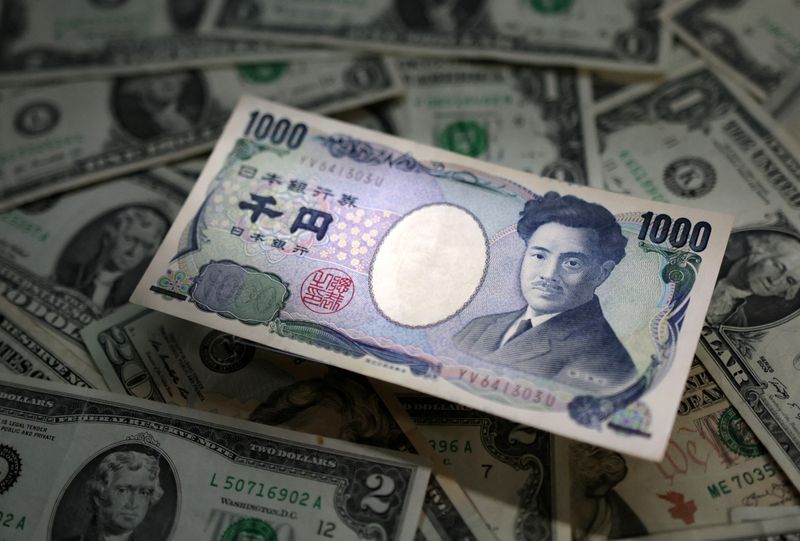By Hannah Lang
NEW YORK (Reuters) -The dollar rose on Wednesday, boosted by higher U.S. bond yields ahead of key inflation data later in the week, and strengthened against the Japanese yen.
The dollar hit a high of 157,715 yen on Wednesday, moving closer to the level that prompted likely interventions from Tokyo in late April and early May.
It last stood at 157.665 yen, up 0.3% on the day.
“I think it’s only going to continue higher for the dollar/yen, including all yen pairs,” said Brad Bechtel, Global Head of FX at Jefferies. “It’s basically tiptoeing back to that 160 level.”
Slightly softer US consumer price inflation data this month weakened the dollar across the board. Since then, US Treasury yields have risen again, with the 10-year yield at a nearly four-week high of 4.57%.
Key factors included Tuesday’s lackluster auction of two- and five-year bonds, which raised doubts about demand, and data showing U.S. consumer confidence unexpectedly improved in May.
The price last rose 0.43% at 105.11. The US core personal consumption expenditures (PCE) price index report – the Federal Reserve’s preferred inflation measure – will be released on Friday. This is expected to remain stable on a monthly basis.
Aside from the Japanese yen, most foreign currencies have appreciated against the U.S. dollar since mid-April, said Marc Chandler, chief market strategist at Bannockburn Global Forex. “I think this step is over and we should look for a recovery of the dollar.”
The dollar fell 0.47% to $0.6618 even after Australian consumer price inflation unexpectedly rose to a five-month high in April, raising the risk that the next move in local interest rates could be higher. [AUD/]
Also in the mix for the yen was the carry trade, which involves borrowing in a currency with a low interest rate to invest in countries with higher interest rates.
“The yen remains under significant downward pressure and carry appetite has increased due to low currency volatility,” said Derek Halpenny, head of Research Global Markets EMEA at MUFG, in a note, citing the high levels of the euro/yen and sterling/yen.
The euro fell to an almost two-year low against the pound of 84.84 pence, driven by strong German regional inflation data.
Inflation recovered after national German data showed inflation rose slightly more than expected to 2.8% in May, although this is unlikely to change expectations for a rate cut by the European Central Bank next month.

The common currency last fell 0.49% to $1.0804.
The pound weakened to $1.2702 a day after hitting a two-month high.


